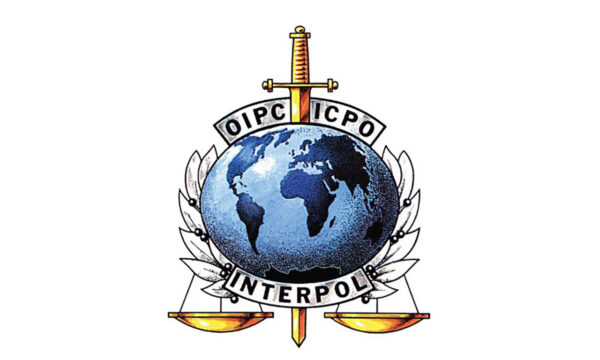Selecting a lawyer for money laundering charges

Money laundering is the process of transforming illegally obtained income into finances that appear legitimate. This activity has significant global implications, impacting economic and legal systems worldwide. It involves a series of stages designed to conceal the true origins and ownership of illicit funds, complicating efforts to trace and address these activities.
Stages of Money Laundering
Placement
The initial stage of money laundering involves depositing ‘dirty’ money into the financial system. This can occur through various means such as casinos, cash purchases, or bank deposits, all aimed at obscuring the origin of the funds. During this phase, the laundered money is frequently used to acquire assets, which can then facilitate further manipulation and layering of the funds.
Lamination
The second phase features a series of complex financial transactions designed to obfuscate the origin of the funds. This typically involves transferring money between multiple bank accounts, engaging in securities trading, and executing other intricate financial maneuvers. The primary objective is to muddle the trail, making it exceedingly difficult to trace the path of the money.
Integration
The third and final stage integrates the laundered funds into the economy as legitimate income. This is often achieved by investing in real estate, businesses, or other assets that generate returns. At this point, the money is considered ‘clean,’ allowing it to be used openly without arousing suspicion.
Legal and financial consequences
Legal consequences
People involved in money laundering can face serious legal consequences:
- Criminal liability: Depending on the amount of money laundered and the level of involvement, the punishment can include up to 20 years in prison.
- Asset seizure: Assets that are acquired or used in the process of money laundering can be seized.
- Fines: The amount of the fines can significantly exceed the sum of the initially laundered funds.
Financial consequences
Money laundering can have the following financial consequences:
- Freezing bank accounts: As part of an investigation, this results in the inability to access funds, which can paralyze a business.
- Loss of trust and reputation: In business and financial circles, this fundamentally affects the ability to conduct operations.
- Decrease in direct foreign investment: Into the country, due to increased legal risks and instability.
Global consequences
Globally, money laundering undermines the integrity and stability of financial systems. It hampers economic development, creates conditions conducive to criminal activity and corruption, and increases risks for law-abiding market participants.
The Role of INTERPOL and International Aspects
Interpol Dubai is pivotal in combating international money laundering by facilitating the exchange of information between national police forces. Key functions of Interpol include:
- Coordination of operations
Organizing joint operations between countries to combat international money laundering schemes. Coordination allows for a more effective fight against transnational criminal organizations. - Information exchange
Providing databases and communication systems for exchanging information about crimes and criminals. Access to up-to-date information helps to respond to threats more quickly and conduct successful investigations. - Technical support
Assistance in investigations, training specialists, and providing expert knowledge in the area of financial crimes. Technical support enhances the quality and efficiency of investigations.
Steps to Choosing the Right Lawyer
Choosing a lawyer is an important step that requires careful consideration, especially in cases involving money laundering. Here are the key aspects people pay attention to:
- Specialization
Choose a lawyer who specializes in criminal law or financial crimes if you’re dealing with money laundering cases. Specializing in this area ensures a deep understanding of the specifics and nuances of such cases. - Experience
When choosing legal representation, it’s best to go with lawyers who have experience handling similar cases, especially within international jurisdictions. Having experience working with international bodies and understanding different legal systems play a crucial role in successfully resolving cases. - Reputation
Check the reviews and recommendations, as well as the attorney’s registration information to confirm their qualifications and professional ethics. Reputation within the legal community and among clients can be an indicator of reliability and competence. - Communication
Make sure your lawyer is available to communicate, clearly explains complex legal issues, and actively participates in your case. Effective communication with your lawyer helps you better understand the process and make informed decisions. - Payment structure
Discuss the financial terms of the partnership, including hourly rates, fixed fees, and potential additional costs. A clear understanding of the payment structure will help avoid unexpected expenses and disputes in the future.
Special Considerations for Clients with International Assets
For clients who own assets in multiple countries, it’s important to consider the following aspects:
- International taxation
Understanding the tax laws of different countries and their impact on assets and income. A comprehensive analysis of tax obligations can help avoid double taxation and optimize tax payments. - Legislative differences
Studying the property and money laundering laws in each country where assets are located. Knowing the local legislation will help avoid legal risks and conflicts. - Risk of confiscation
Risk analysis related to political and economic instability in countries where assets are located. Assessing the risks of confiscation allows for the development of asset protection strategies. - Legal protection
Protecting assets through international legal tools and agreements, such as trusts and funds. Using these instruments helps preserve and protect assets from wrongful actions. - Bounced cheque UAE
Taking into account the specifics of legal practices in the UAE related to the use of checks, which can be bounced and become grounds for legal action. Proper handling of financial instruments in the UAE minimizes the risk of legal issues.
The editorial unit























Facebook
Twitter
Instagram
YouTube
RSS